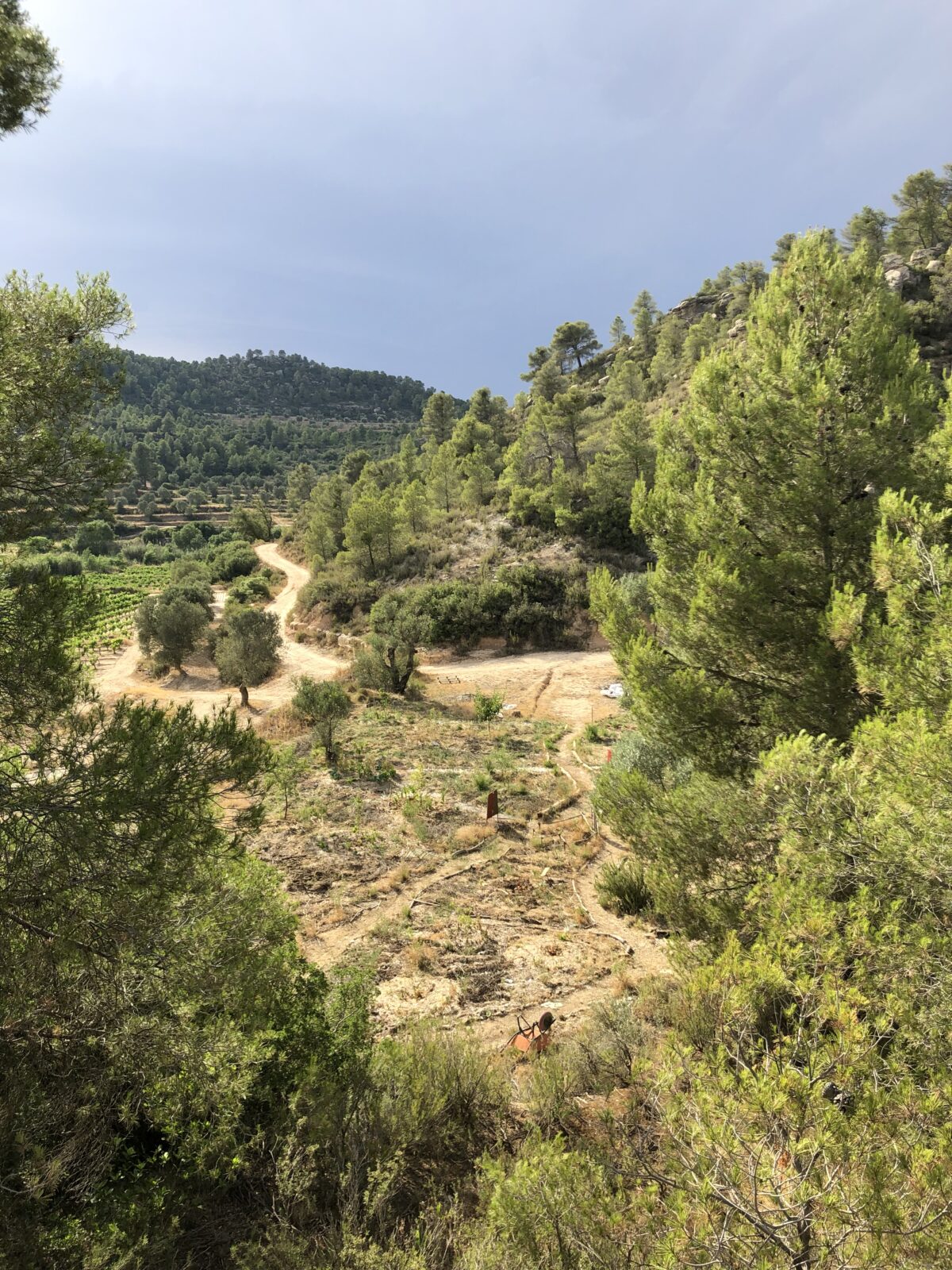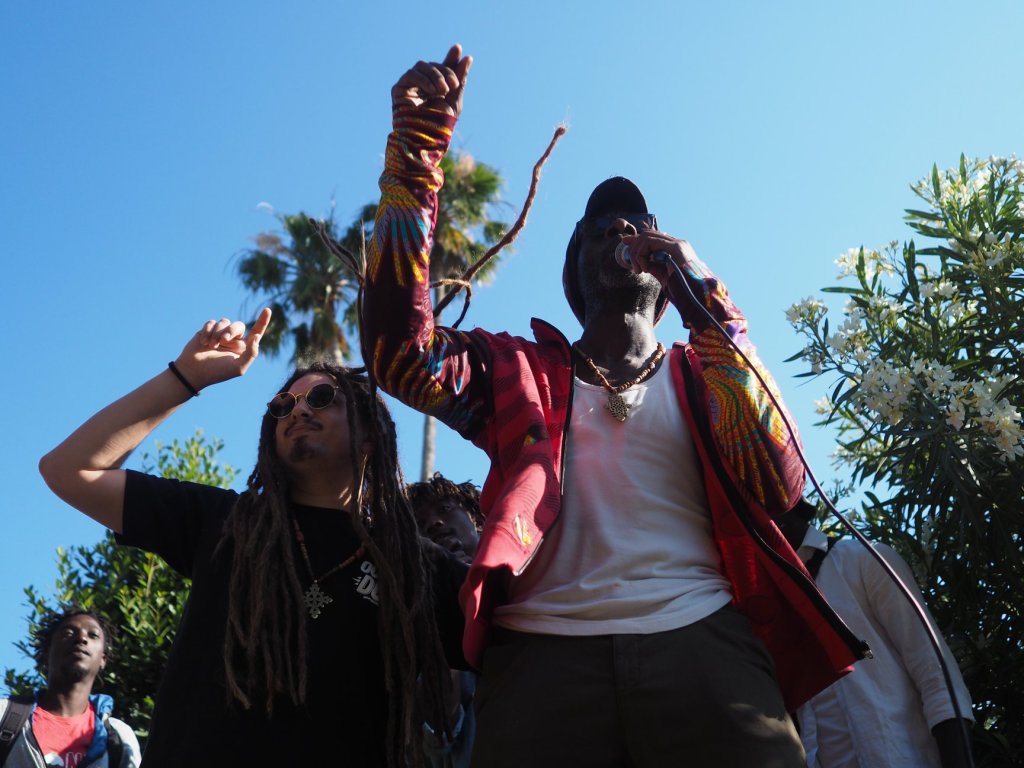ENG
I left secondary teaching because…..
Feb 19, 2020
To everyone,
I am writing this letter to tell you, if you haven’t heard already, that I am leaving my position as a secondary school teacher. My last day, after ten years, was 10th February and I want to explain why I have taken this decision.
I remember very clearly on the way to school in October 2018 reading the Guardian headline “Humanity has wiped out 60% of animal populations since 1970“. I was stopped in my tracks with this devastating information, and realised that although I was aware of climate breakdown from the 2018 IPCC report, and the massive problems with plastic pollution, this was what was meant by the Sixth Mass extinction. I remember sitting at lunch with two colleagues, the conversation was normal… football and politics, but it all seemed so pointless compared to this revelation. I needed to start a conversation about it, I needed to find a way to bring it to people’s attention, and I decided to redirect the conversation and tell colleagues what I had read.
I spent about a month in November 2018 walking around in a kind of daze. Greta had already started her Fridays For Future school strikes, Extinction Rebellion had formed and was preparing civil disobedience actions. The science was out there, the reports of climate breakdown and ecological collapse were occasionally hitting the headlines, but there was no reaction among people outside of the activists and journalists I already followed. Business as usual continued everywhere, including in secondary education. It became increasingly strange to me that schools, whose very existence is to educate future generations, were not reacting and sharing information about the most important issue humanity has ever faced. Our future is certain to include millions of climate refugees, devastating effects of climate and ecological breakdown at locations across the globe, it will not be “business as usual”. We need to prepare ourselves, and future generations, to cope with these problems, and ultimately solve them.
“I firmly believe that the multiple crises we are facing are symptoms of our pathological habit of understanding and experiencing ourselves as separate from nature, from each other, and from the community of life.”
I don’t know to what extent I can have a positive impact on reversing the ecological collapse, or delivering environmental education in a way that inspires and promotes behaviour change; I am one person among seven billion. But I know that my time is not usefully spent learning how to train students to get points on exams. I don’t believe that the formal education system has its priorities right, and I genuinely believe that students would learn more from a day in solitude in wild nature. I’m not the only one, these are quotes from Daniel Christian Wahl, PhD in his 2016 book “Designing Regenerative cultures”
“Most university graduates are equipped with outdated knowledge and skills by the time they graduate. Overspecialisation has limited their capacity for integrative, lateral and holistic thinking”
“Making time for solitude in wild nature helps us to have the largest conversation we are capable of having with the world“
As the new decade started I realised that since our future depends on the health of ecosystems everywhere, putting my energy into regeneration and promoting living-systems thinking is what I should be doing. To have any chance of achieving the transformation which will prevent run-away feedback cycles and the loss of most life on Earth, we need to raise everyone’s ecological and social literacy. The formal education system I know is not placing enough emphasis on this. The time limit to make these changes is 10 years. Last year it was eleven years, and nothing close to the scale of necessary action has been taken since we knew that.
As well as joining Extinction Rebellion, the Boodaville Association is where I will be dedicating my time from now on. I founded the association in 2016 with colleagues from sustainability and permaculture backgrounds, after eight years slowly building up an eco-education project on land I own in the Matarranya. We are running projects implementing organic regenerative agriculture, and well-designed holistic forest management, which are practical solutions that have been identified as critically important. But the most important change, as identified in a 2012 UN report entitled “Resilient People, Resilient Planet”, is empowering people to make sustainable choices. This shift can be achieved by the right kind of education, which I now firmly believe needs to include time in forests and natural spaces.
In the future, or starting now, you all have the chance to be part of these solutions, or part of the social movements demanding action. Boodaville is a project about Permaculture, which is a word for ecological design, and I openly invite you to keep in touch with me and the work we are doing. With help from the EU we offer funded places for young people to learn in nature or to develop their own projects, and it would bring a genuine smile to my face to know that many of you think this is important as well.
At boodaville.org you can sign up to stay in touch with the project, please sign up!
If any of you are feeling overwhelmed by the reality of the “sixth mass extinction” and “climate breakdown”, you are not alone. A starting point to deal with these issues is a Deep Adaptation group and at the Climate Psychology Alliance they offer support and counselling.
Wake up, fear less, love more
Anna Louise Gurney,
CAST
He abandonado educación de secundaria porque…
Posted on Feb 19, 2020
by boodaville
Carta a mis compañeras educadoras.
Os escribo esta carta para deciros, por si aún no lo habéis oído, que he decidido dejar la educación secundaria. Mi último día en la escuela, después de diez años, fue el 10 de febrero y quiero explicar por qué he tomado esta decisión.
Me acuerdo con claridad el día de octubre de 2018 que leía por la mañana el titular de The Guardian “La humanidad ha aniquilado al 60% de las poblaciones de animales desde 1970“.
Me detuve en seco con esta información devastadora, y me di cuenta de que, aunque ya era consciente de la crisis climática a través del informe del IPCC de 2018, y de los enormes problemas con la contaminación plástica, que a esto era lo que se referían con la Sexta Extinción Masiva. Recuerdo estar sentada en la comida con dos compañeros, la conversación era normal… fútbol y política, pero todo parecía tan fútil en comparación con esta revelación. Necesitaba involucrarme en una conversación al respecto, necesitaba encontrar una manera de compartir la gravedad del asunto, y decidí redirigir la conversación y decirles a mis colegas lo que había leído.
Pasé aturdida aproximadamente un mes en noviembre de 2018. Greta ya había comenzado sus huelgas escolares los viernes para el futuro, “Fridays For Future”; ya se había formado Extinction Rebellion, que estaba preparando acciones de desobediencia civil. La ciencia estaba clara, los informes del colapso climático y ecológico ocasionalmente aparecían en los titulares, pero no hubo reacción entre personas ajenas a los activistas y periodistas que ya lo seguíamos. Actuar con normalidad como si nada sucediese “business as usual” era la reacción dominante, incluso en la educación secundaria. Me resultaba cada vez más extraño que las escuelas, cuya labor es educar a las generaciones futuras, no reaccionaran y no compartieran información sobre el problema más importante que la Humanidad haya enfrentado. Nuestro futuro más que probablemente incluirá millones de refugiados climáticos, los efectos devastadores del colapso climático y ecológico en lugares de todo el mundo, no seguirá siendo “lo de siempre” (“business as usual”). Necesitamos prepararnos a nosotros mismos y a las generaciones futuras para hacer frente a estos problemas y, en última instancia, resolverlos.
“Creo firmemente que las múltiples crisis a las que nos enfrentamos son síntomas de nuestro hábito patológico de habernos comprendido y experimentado a nosotros mismos como seres ajenos a la naturaleza, separados el uno del otro y de la red de la vida.”
No sé en qué medida podré tener un impacto positivo en revertir el colapso ecológico u ofrecer educación ambiental de una manera que inspire y promueva el cambio de comportamiento, tan sólo soy una persona entre siete mil millones. Pero sé que mi tiempo no está bien invertido enseñando a los estudiantes de cara a que obtengan nota en los exámenes. No creo que las prioridades del sistema de educación formal sean correctas, y realmente creo que los estudiantes aprenderían más con un día en soledad en la naturaleza salvaje que estando metidas dia si y dia también dentro de un edificio rectangular. Sé que no soy la única que piensa así. Éstas son citas del dr. Daniel Christian Wahl, en su libro de 2016 “Diseñando culturas regenerativas”.
“La mayoría de los graduados universitarios están equipados con conocimientos y habilidades obsoletos para cuando se gradúan. La sobreespecialización ha limitado su capacidad de pensamiento integrador, lateral y holístico”
“Pasar tiempo en soledad en la naturaleza salvaje nos ayuda a tener la mayor conversación que somos capaces de tener con el mundo “
!Cuando comenzó la nueva década, me di cuenta de que, dado que nuestro futuro depende de la salud de los ecosistemas en todas partes, poner mi energía en regeneración y promover el pensamiento de los sistemas vivos es lo que debería hacer!
Para tener alguna posibilidad de lograr la transformación que evitará los ciclos de retroalimentación y la pérdida de la mayor parte de la vida en la Tierra, necesitamos elevar la alfabetización ecológica y social de todos. El sistema de educación formal que conozco no está poniendo suficiente énfasis en esto. El límite de tiempo para hacer estos cambios es de 10 años. El año pasado quedaban once años, y aún no se han tomado medidas cercanas a la escala de acción necesaria desde que los científicos nos lo han comunicado!
Además de unirme a Extinction Rebellion, la Asociación Boodaville es donde dedicaré mi tiempo de ahora en adelante.
Fundé la asociación en 2016 con colegas de los ámbitos de de sostenibilidad y permacultura, y llevo ocho años construyendo lentamente un proyecto de educación ecológica en la tierra que poseo en Matarranya. Estamos ejecutando proyectos que implementen agricultura regenerativa orgánica y una gestión forestal holística bien diseñada, que son soluciones prácticas que se han identificado como de importancia crítica.
Pero el cambio más importante, como se identifica en un informe de la ONU de 2012 titulado “Gente resiliente, planeta resiliente”, es empoderar a las personas para que tomen decisiones sostenibles.
Este cambio se puede lograr mediante el tipo correcto de educación, que ahora creo firmemente que se debe impulsar con la inclusión de estancias en los bosques y espacios naturales.
En el futuro, o comenzando ahora, todos vosotros tenéis la oportunidad de ser parte de estas soluciones, o parte de los movimientos sociales que reclaman acción. Boodaville es un proyecto sobre Permacultura, que es una palabra para diseño ecológico, y os invito directamente a manteneros en contacto conmigo y con el trabajo que estamos haciendo. Con ayudas de la UE, podemos ofrecer plazas financiadas para que los jóvenes aprendan en la naturaleza o desarrollen sus propios proyectos, y sería una verdadera alegría para mí saber que muchos de vosotros pensáis que esto también es importante.
En boodaville.org o aquí podeis suscribiros para manteneros en contacto.
Si alguno de vosotros se siente abrumado por la realidad de la “sexta extinción masiva” y el “colapso climático”, no estás solo/a. Un punto de partida para abordar estos problemas es un grupo de Adaptación Profunda y en la Alianza de Psicología Climática ofrecen apoyo y asesoramiento.
Despierta, teme menos y ama más
Anna Louise Gurney,








